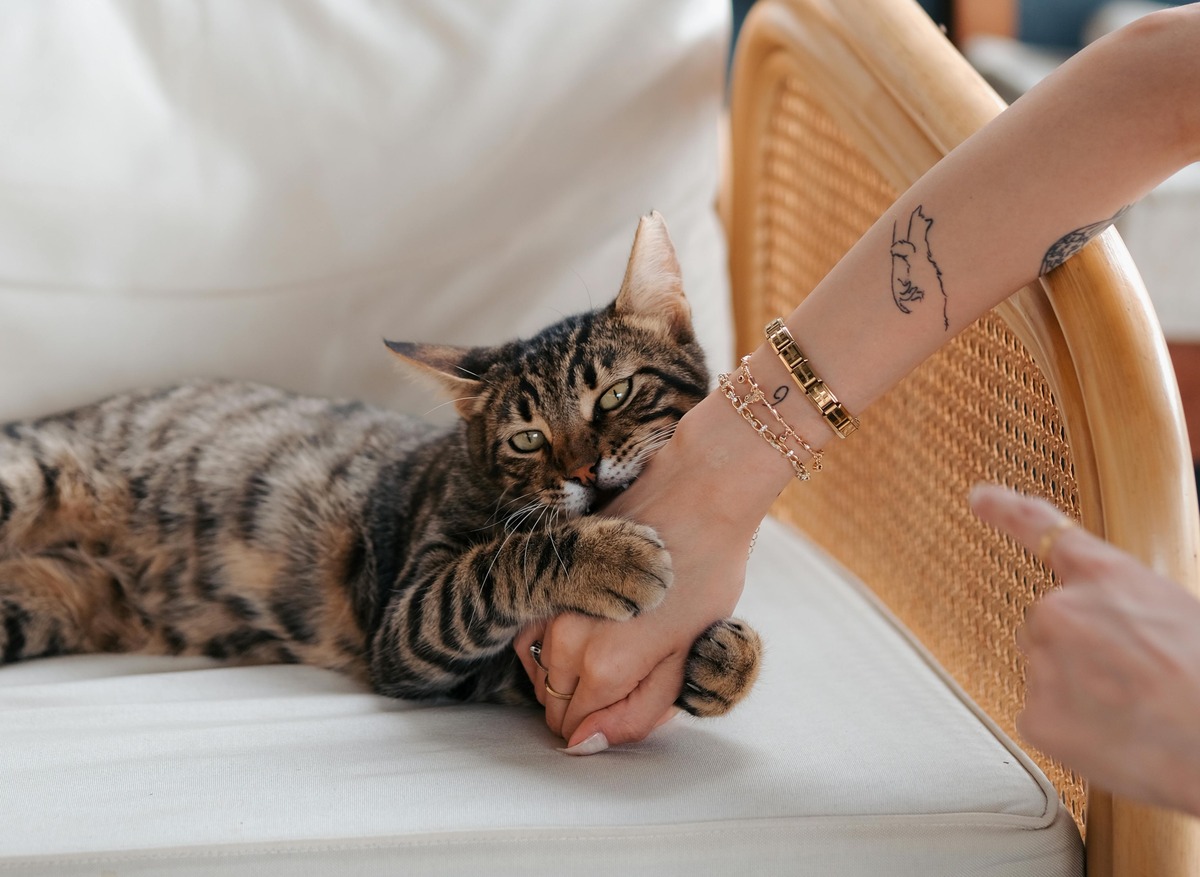Why Cats Bite: Understanding Feline Behavior and Boundaries
Cats may be small, adorable, and fluffy, but they also have a natural instinct to bite—and sometimes, it can feel completely unexpected. Whether it’s a gentle nibble during playtime or a sudden chomp when petting them, cat bites can be confusing and even painful.
But why do cats bite in the first place? Understanding the reasons behind this behavior can help you respect their boundaries, build a stronger bond, and prevent unwanted aggression. Here are 10 common reasons why cats bite—and what you can do about it.
1. Playful Biting
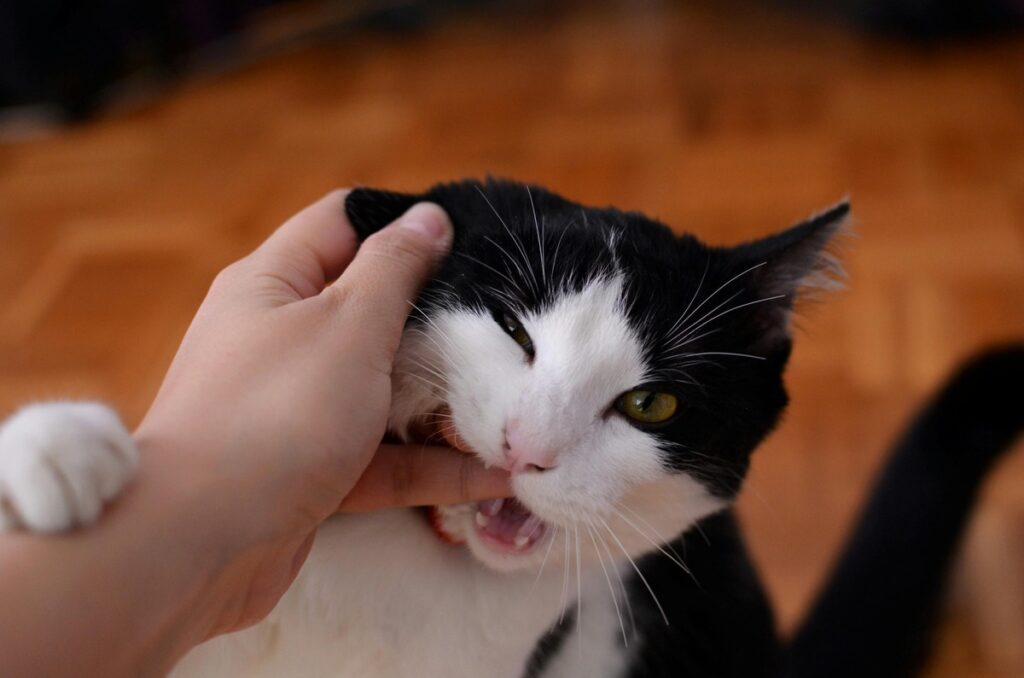
Kittens and young cats love to play, and biting is a natural part of their play behavior. In the wild, kittens bite their littermates as they practice hunting and develop coordination.
If your cat nibbles on your hands or feet during playtime, it’s likely not aggression but rather an invitation to interact. However, allowing this behavior can teach them that biting humans is acceptable—which can lead to more painful bites as they grow.
What You Can Do: Redirect their energy to toys, not your hands. Use interactive toys like feather wands, balls, or stuffed mice to mimic play hunting.
2. Overstimulation (Petting Aggression)
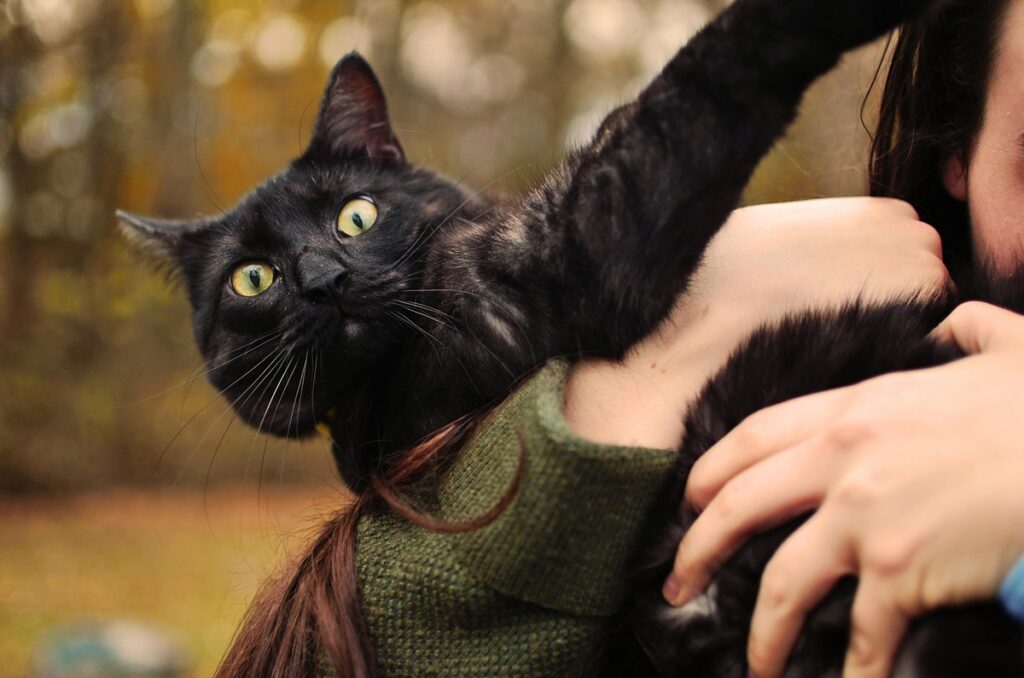
One of the most common reasons cats bite is overstimulation—also known as “petting-induced aggression.” Some cats have a low tolerance for prolonged petting, and what starts as an enjoyable interaction can suddenly become overwhelming for them.
Signs that your cat may be reaching their stimulation threshold include:
• Tail flicking or thumping
• Flattened ears
• Tense body posture
• Dilated pupils
If these signs are ignored, your cat may resort to biting to communicate that they’ve had enough.
What You Can Do: Pay attention to your cat’s body language and stop petting before they get irritated.
3. Fear or Stress

When a cat feels scared or threatened, their fight-or-flight response kicks in. If they feel cornered and can’t escape, they may bite defensively as a way to protect themselves.
Common causes of fear-induced biting include:
• Loud noises or sudden movements
• Being handled by unfamiliar people
• A stressful environment (e.g., a new pet or home changes)
What You Can Do: Give your cat a safe space and avoid forcing interactions. Let them approach you on their own terms.
4. Redirected Aggression
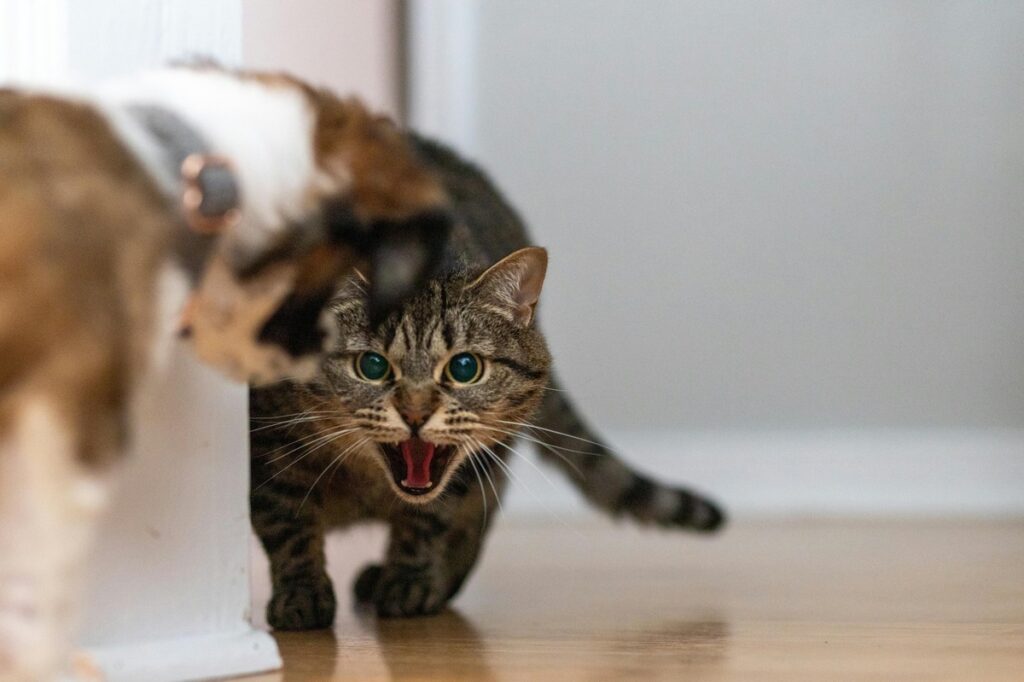
Sometimes, cats get frustrated by something completely unrelated to you, but they take it out on the nearest target—which could be your hand, leg, or another pet.
For example, if your cat is watching a bird through the window but can’t reach it, they might become frustrated and lash out when you approach them.
What You Can Do: If your cat is visibly agitated, avoid touching or picking them up. Let them calm down before interacting with them again.
5. Pain or Medical Issues
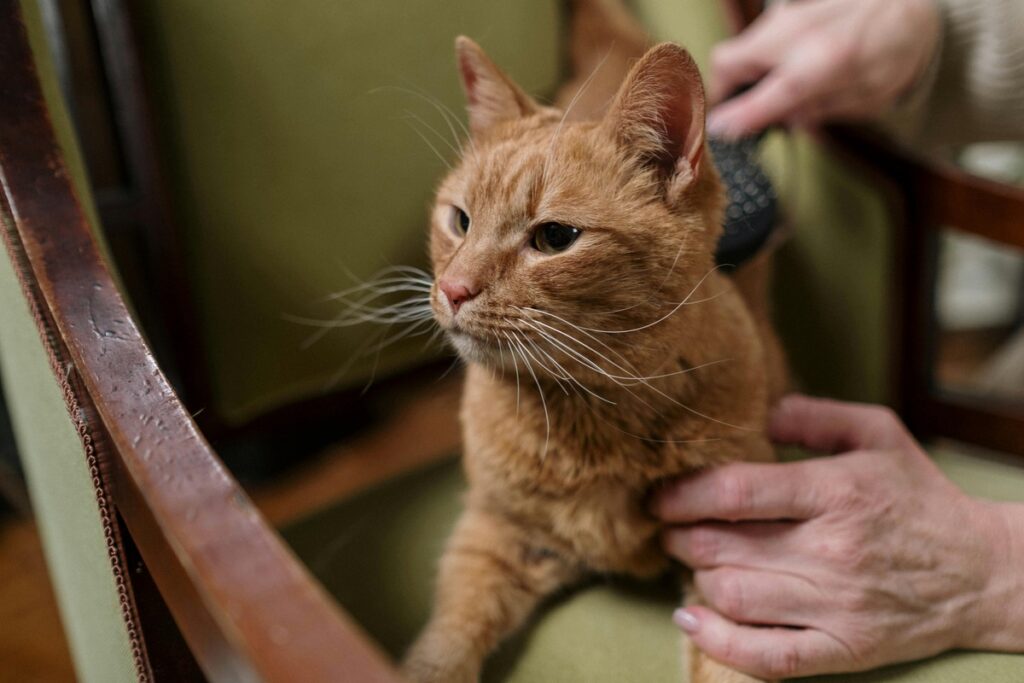
Cats instinctively hide pain, so if your cat suddenly starts biting when touched, they might be experiencing discomfort or an underlying health issue.
Common medical causes of pain-related biting include:
• Arthritis or joint pain
• Dental problems
• Ear infections
• Skin allergies
What You Can Do: If biting seems out of character for your cat, schedule a vet check-up to rule out any medical concerns.
6. Territory and Possessiveness
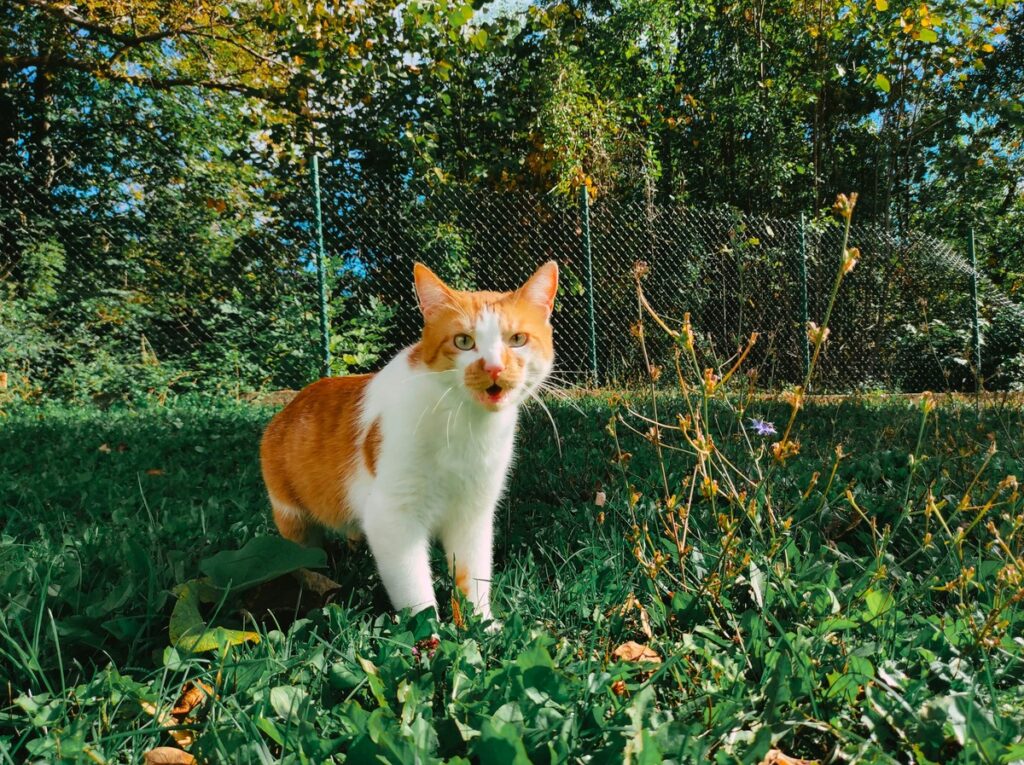
Cats are naturally territorial animals, and they may bite if they feel their space, food, or belongings are being threatened.
If your cat guards their bed, food bowl, or toys aggressively, they might have territorial or possessive tendencies.
What You Can Do: Avoid touching their belongings when they’re nearby and provide multiple feeding and resting areas in multi-cat households to reduce competition.
7. Love Bites
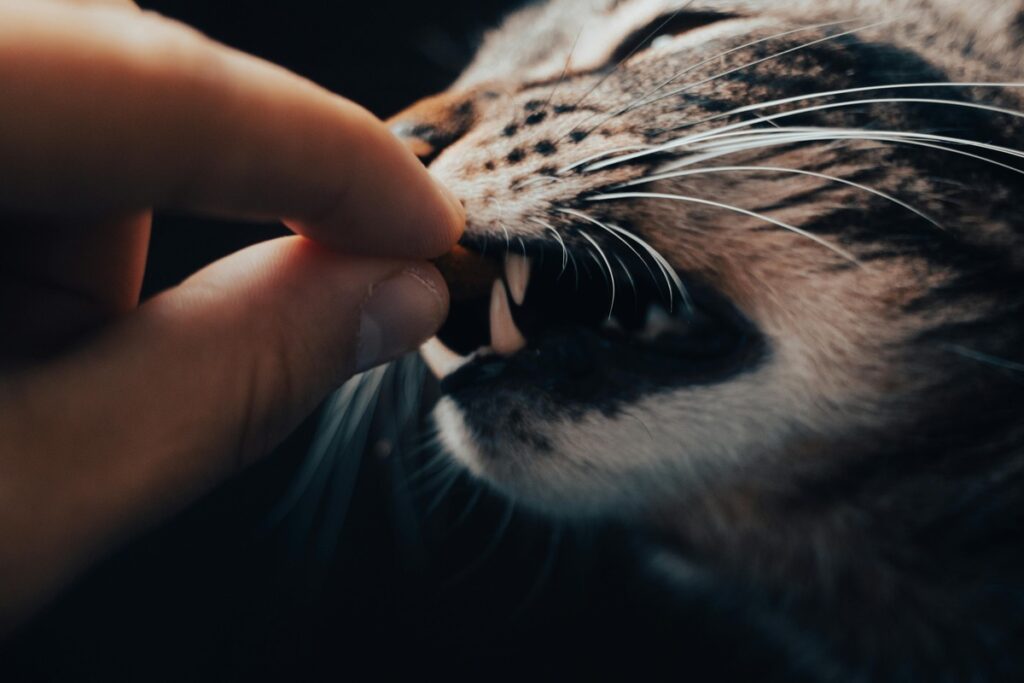
Not all bites are aggressive! Sometimes, cats give gentle, soft bites as a sign of affection. These are called “love bites”, and they’re usually not painful.
Your cat may give you a tiny nibble while licking you, similar to how they groom other cats as a sign of social bonding.
What You Can Do: If love bites are too rough, gently withdraw your hand and distract them with a toy to encourage gentler interactions.
8. Maternal Protection
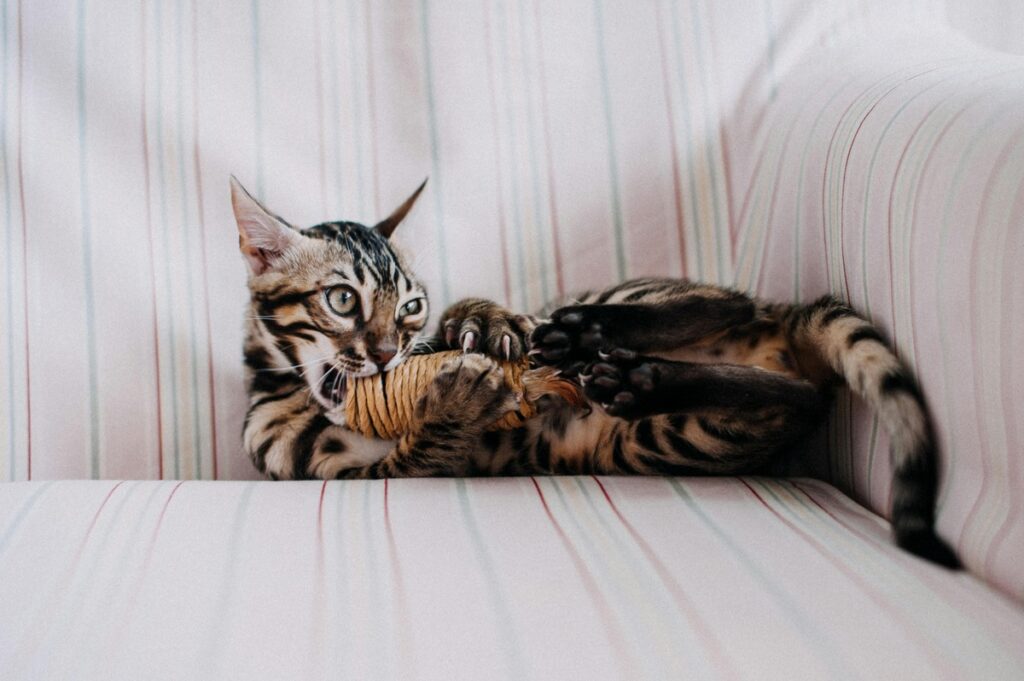
A mother cat with kittens may bite or swat at humans or other animals to protect her young. This is instinctive behavior to keep her kittens safe from potential threats.
Even the most gentle and affectionate cats can become more aggressive when they’re nursing.
What You Can Do: Give mother cats plenty of space and avoid handling her kittens until she is comfortable with it.
9. Lack of Socialization
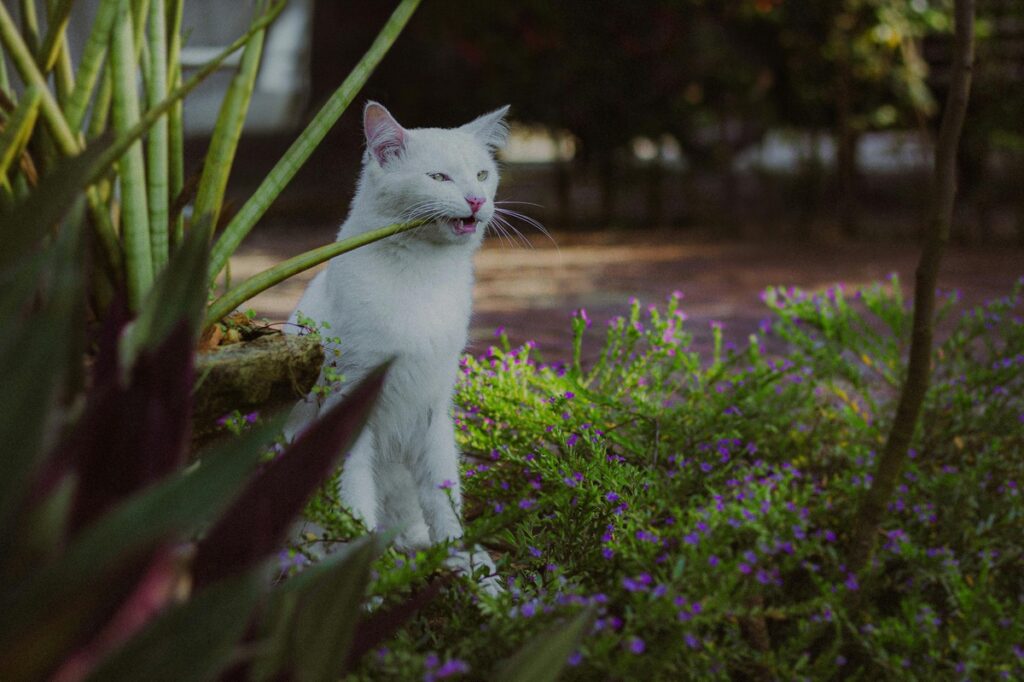
Cats that weren’t properly socialized as kittens may struggle with human interaction. A cat that was separated too early from its mother or wasn’t exposed to gentle handling during their first few months may resort to biting when overstimulated.
These cats may also have a harder time distinguishing between play and aggression.
What You Can Do: Be patient and gentle with unsocialized cats. Use positive reinforcement and let them approach you on their own terms.
10. Attention-Seeking Behavior

Some cats learn that biting gets them attention—even if it’s negative. If a cat is ignored for too long, they might nip at your hands or ankles to demand interaction.
This behavior is more common in cats that don’t have enough playtime or mental stimulation.
What You Can Do: Make sure your cat gets daily play sessions and interactive activities to keep them engaged and happy.
How to Stop Unwanted Biting
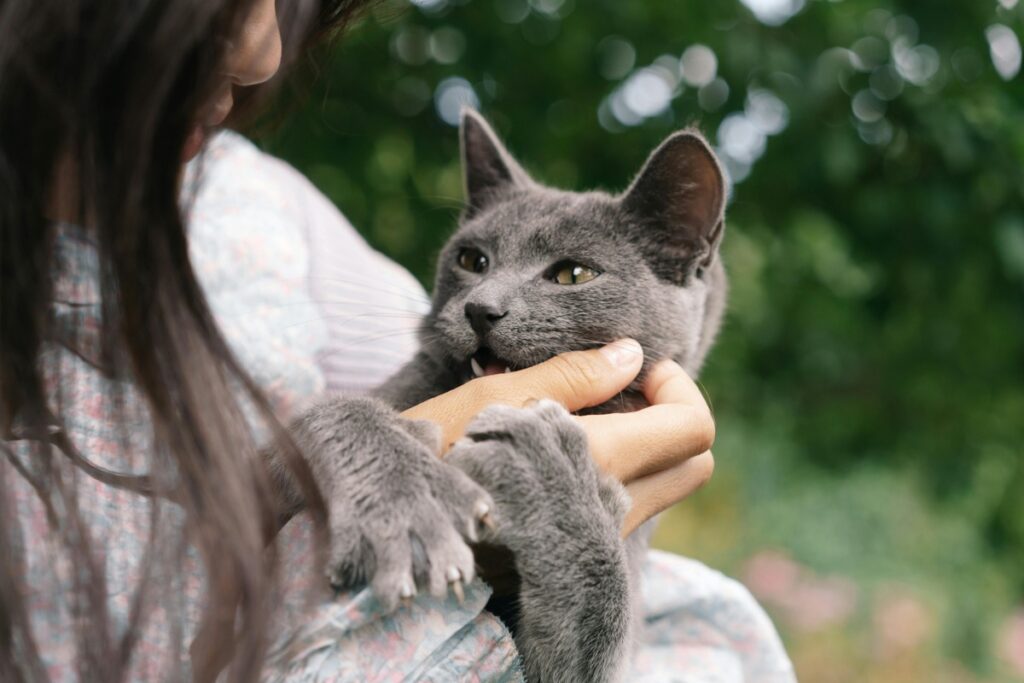
Understanding why your cat bites is the first step to preventing it. Here are some key tips:
• Never punish your cat for biting. Cats don’t respond well to punishment—it can make them more fearful or aggressive.
• Provide appropriate toys. Redirect biting behavior onto soft, chewable toys instead of hands or feet.
• Watch for warning signs. Learn your cat’s body language and respect their boundaries.
• Give them space when needed. If your cat is agitated, let them calm down before interacting.
• Use positive reinforcement. Reward gentle behavior with treats, praise, and affection.
Things To Keep in Mind

Cats bite for many different reasons, from playfulness and love to fear and frustration. By understanding their body language, boundaries, and natural instincts, you can minimize biting behavior and build a stronger, more trusting relationship with your feline friend.
If your cat’s biting is sudden, severe, or persistent, consult a vet or animal behaviorist to rule out any medical or behavioral concerns.
With patience and understanding, you can help your cat feel safe, respected, and loved—without the painful bites!

